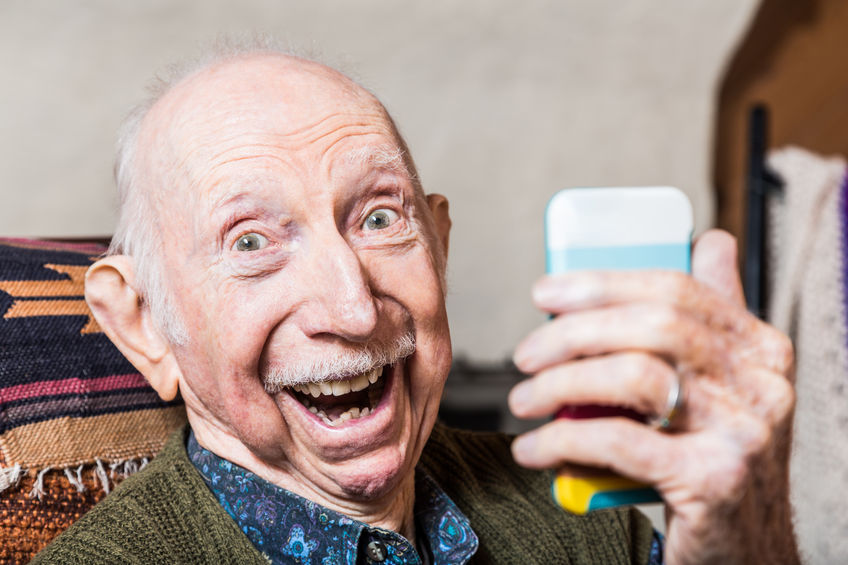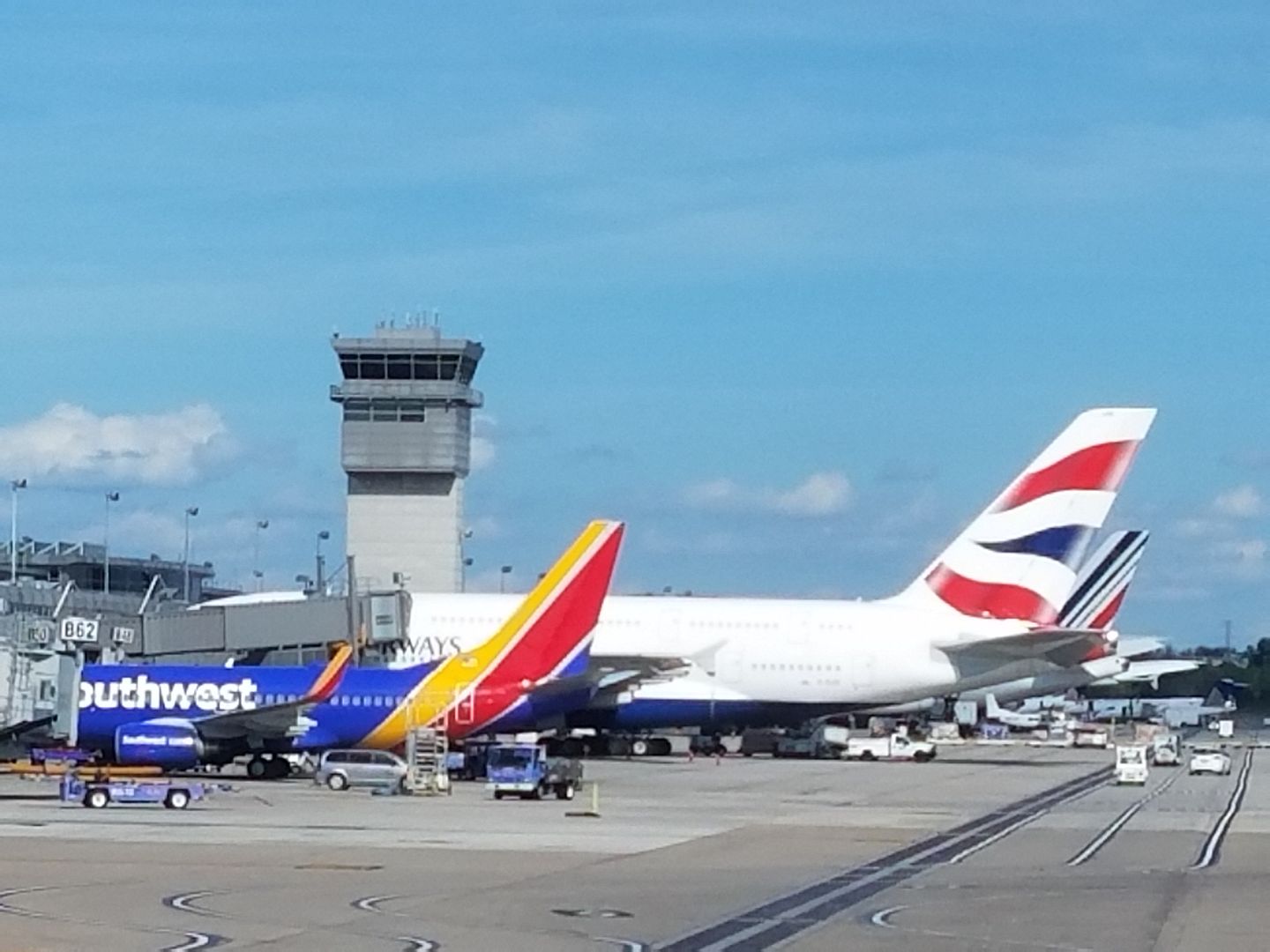The Department of Transportation announced a proposed rule today to require airlines to disclose to consumers in advance if their flight will permit passengers to make voice calls using wireless devices.
This is a strange regulation to open comment on for a number of reasons.
- Inflight voice calls remain illegal in the U.S.
- Airlines that allow voice calls don’t hide the fact, they advertise it because they make money on it.
- The rule is opening for public comment. It may be years before it could go final. Regardless, the process will be administered by presumptive Secretary of Transportation Elaine Chao who isn’t known to be friendly to industry regulation.

Copyright: creatista / 123RF Stock Photo
The U.S. Department of Transportation proposes disclosure rules for something that does not even exist today in the U.S. However, they believe it could exist in the future. Therefore:
- when it becomes possible
- if airlines permitted it
- and they failed to provide advance notice
- then and only then there would be, in the opinion of current DOT leadership, an ‘unfair and deceptive practice’.
There are many important issues in aviation, involving safety and efficiency. However the Department of Transportation believes that just like smoking impinged on passenger comfort and was within their statuatory rulemaking authority under 49 U.S.C. § 41702 to broadly regulate the ‘safe and adequete’ provision of air transportation, voice calls could be a similar hardship making air travel ‘inadequate’.
There’s an old joke that one anecdote makes a regulation, and two anecdotes makes a law. Here we don’t even have the first anecdote.
The DOT wants to require any future airline offering inflight voice calling to have to disclose that with search results (“the first time that flight is offered or identified to a consumer”).
Trigger warning:
The Department believes that consumers would be unfairly surprised and harmed if they learned only after the purchase of a ticket (or, worse, after boarding the aircraft) that the carrier permits voice calls on its flights. If voice calls are allowed on a flight, the DOT proposal requires disclosure the first time that flight is offered or identified to a consumer. No disclosure is required if the flight does not allow voice calls.
They also see this as another opportunity to the public’s 2 Minutes Hate on inflight cell phone use, just like when they opened their Notice of Proposed Rulemaking in February 2014.

Consumers overwhelmingly say they don’t like cell phone use on planes. Most have never experienced it. And wouldn’t necessarily choose a less convenient airline, or a more expensive airline to avoid it.
In fact, there are 5 things most people don’t consider.
- Cell phone use is allowed throughout much of the world, uptake is limited, and calls are short. Fights do not break out.
Aeromobile is a company that enables cell phones to work clearly on planes, for a fee. Clients of Aeromobile have included Swiss, airberlin, Air Seychelles, Air Serbia, Alitalia, EVA Air, Qatar, Lufthansa, Aer Lingus, Etihad, Virgin Atlantic, SAS, and Emirates.
- Amtrak allows cell phones in a confined space, too, and it’s not awful (though conversations around us can sometimes be amusing, and sometimes eye roll-inducing). They also have quiet cars.
- Planes had seatback phones for years. They weren’t often used because they were expensive. So presumably the fear in letting passengers use their cell phones is that it was ok when it wasn’t practical to use, but not when it’s cheap. It’s unclear that it would actually be cheap, it’s sold as a premium service throughout the world now.
- Planes aren’t peaceful spaces to begin with. Engines make noise. Babies cry. Passengers talk to each other now. I can’t tell you how many times folks have told me their life story… sometimes after they’ve thrown back one too many. Even when I’m wearing noise cancelling headphones. Cell phone calls aren’t worse than that, and I’d often prefer my seatmate talk into their phone than talk to me.
- Calls can be important. Last year a woman might have been able to stop a suicide if she could have used her phone inflight. There are painful tragedies, and special moments repeating themselves across the country every day. How many business travelers would love to say good night to a young child they rarely see during the week? What would that extra connectedness to a parent mean to that child?
Not every call is important, but some are. To the extent this isn’t free you’d likely see this used for the more important calls — the ones that are worth the money. And the important calls have to count for something.

Union Station, Washington DC
Unlike Amtrak, we have several major US airlines. Consumers frequently complain that they’re all the same and don’t do enough to compete with each other. This is an opportunity for them to offer product differentiation. Many airlines wouldn’t allow calls. Delta is on record saying they won’t permit inflight cell phone use even if legal. Consumers who prefer that policy can choose Delta, and those who don’t mind or want to use their phones might book away from Delta. That’s the way it’s supposed to work.
And, because freedom.


“Consumers overwhelmingly say they don’t like cell phone use on planes. Most have never experienced it.” — every modern airline passenger has overheard someone talking on the phone onboard, albeit on the ground. Voice calls in the air would be even less intrusive, as engine noise would muffle the chatter.
“Cell phone use is allowed throughout much of the world, uptake is limited, and calls are short. Fights do not break out.” — Americans are culturally more aggressive than Asians and Middle Easterns.
“Consumers who prefer that policy can choose Delta, and those who don’t mind or want to use their phones might book away from Delta. That’s the way it’s supposed to work.” — this gets a bit too deep in the weeds of rational economics, which hardly holds in real life. A large number of consumers have little or no say in the airlines they fly.
@Jason
I, for one, do not want to listen to someone else’s conversation especially when they are a mere ten inches from my head. And some will be on the phone A LOT longer than others!
@DrEnjoy — so, given Gary’s point #5, you would prefer not to stop a preventable suicide?
The term “trigger warning” just tends to be “red meat” for certain people and gets in the way of rational conversation. Somehow, an actual description of the proposed rulemaking as a “disclosure” results in far fewer panties in a bunch.
And yes, the DOT, like all federal agencies, make rules. It’s why you don’t have people blowing smoke in your face mid-flight, as you sip water that’s safe to drink and eat food without rat feces.
Please find the frequency of this event. Cannot a FA be contacted to intervene on this person’s behalf?
“And because freedom.”
This should end the discussion. Nobody should want the government enforcing preferences or trying to protect us from perceived annoyances. They can barely manage their basic fundamental responsibilities.
WOW, you’ve obviously never been on a plane when the entire first class cabin could hear the hour conversation (duration of the flight) one person chose to shout – noise cancelling earphones did nothing to shut this out. The last vestige of not being intruded verbally on may be a plane – there is no escaping in other public places -shame if this were to go away (and don’t get me started on the people who don’t even use headset so you have to hear BOTH sides of the conversation)
I can’t believe that there is ANYTHING so important (baring a hijack which seems to have had calls made even tho at the time it wasn’t supposed to work) that calls need to be made inflight. If there was something so critical then either asking a FA or email/texting to a police department should solve the problem. Not to start a controversy but most young children would probably rather have a hug than hear a disembodied voice (and video calls could be made before or after the flight) and older children are adept at text, etc
@Bob this isn’t just disclosure in the sense DOT wants customers to know about checked baggage fees up front, they are clear in their discussion that people will be mortified learning as they get on the plane that they’re about to experience something horrifying and need to know in advance to prepare for it and steel themselves.
@Gary
The quoted section of your article seems to specifically mentions “unfairly surprised and harmed if they learned only after the purchase of a ticket.” This is no different than other disclosure requirement, ensuring that the consumer has access to relevant information before making their purchase. Just like someone might not want to pay a LCC’s $40 checked bag fee if it’s disclosed up front, they may not want to fly an airline that allows calls.
I was in an airport lounge a few weeks ago and there was a guy making a very loud phone call on speaker phone for everyone to hear. If you’re in a lounge you’re a pretty sophisticated traveler, so even him not knowing or caring that this wasn’t acceptable doesn’t bode well for in-flight calls. This idea is going to go badly, it will be a matter of a few months before enough fights break out onboard that calls will have to be banned.
@Bob the full DOT analysis discusses the even worse shock of learning as you’re about to get on the plane.
@RCB except that there are plenty of airlines around the world offering this now, and flights don’t break out. So asserting there will be fights isn’t persuasive, when years of data on a variety of airlines across Europe and Asia suggests otherwise.
Americans are a lot more intolerant and combative when it comes to this crap, so what they put up with in Asia and other places isn’t what we’ll put up with here. I know that in China it’s pretty common for people to practically scream into their phones, or play music/games/movies with no headphones. I live in DC, if you try that on the Metro, you get corrected IMMEDIATELY.
Plus, I’ve been on flights all over the world and have never seen/heard someone on a phone, is it really that prevalent?
Gary —
Regarding “Inflight voice calls remain illegal in the U.S.”, is this true in general? Or merely related to being illegal to use a phone’s cellular radio? I believe it *is* “possible” right now by way of wifi calling (whether or not that’s a feature the airlines intend).
The implication of the headline is that passengers are going to be yucking it up for hours on their own cell phones at no cost. I think there will be few that partake, either the quick minute to check on a ride, etc., or the fat cat with giant corporate expense account.
While I am not for or against cell phone use in flights, I would think that if one wishes to use a cell phone and talk to the world while in the air, there should be a section in the plane much like there was a smoking section in the past for passengers who wish to chatter in flight would be able to do without affecting the flying public in the cabin. Personally, when I purchase a seat on a plane, that becomes my space, and someone talking on a phone would be intruding my space